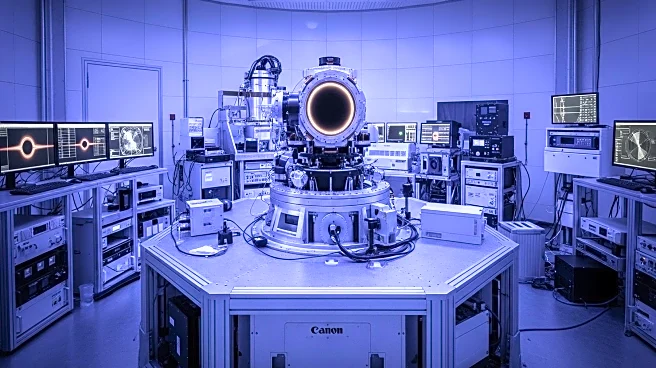What's Happening?
The Laser Interferometer Gravitational-Wave Observatory (LIGO) has confirmed predictions by Albert Einstein and Stephen Hawking through the detection of gravitational waves from black hole collisions. The newly detected signal, GW250114, provides strong evidence that astrophysical black holes behave as predicted by general relativity. The event also validates Hawking's prediction that the combined area of merging black holes' event horizons can only grow, never shrink. This discovery marks a significant milestone in gravitational wave science, offering a clearer view of black hole nature.
Why It's Important?
This confirmation of Einstein and Hawking's theories enhances our understanding of black holes and their behavior, supporting the concept of quantum gravity. The findings validate the theoretical framework of general relativity and Hawking's predictions about event horizons, contributing to the broader field of astrophysics. The ability to detect and analyze gravitational waves opens new avenues for studying cosmic phenomena, potentially leading to breakthroughs in understanding the universe's fundamental forces and structures.
What's Next?
LIGO plans to continue refining its detection capabilities, with future improvements including a fourth detector in India. This expansion will enhance the precision of gravitational wave source localization, allowing for more detailed studies of black hole mergers. The ongoing advancements in gravitational wave technology promise to further validate theoretical predictions and explore new aspects of cosmic events.









